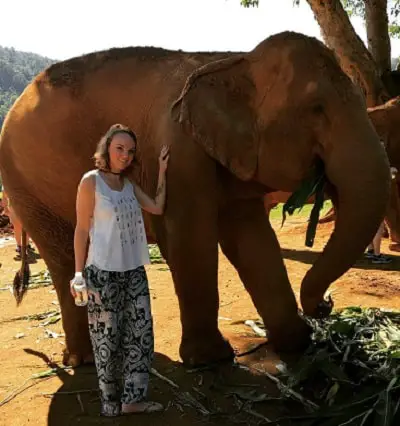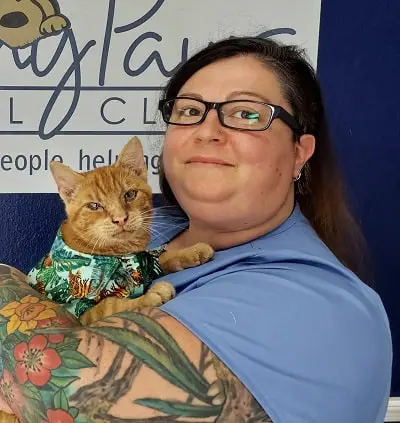About this program
A program that prepares individuals, under the supervision of veterinarians, laboratory animal specialists, and zoological professionals, to provide patient management, care, and clinical procedures assistance as well as owner communication. Includes instruction in animal nursing care, animal health and nutrition, animal handling, clinical pathology, radiology, anesthesiology, dental prophylaxis, surgical assisting, clinical laboratory procedures, office administration skills, patient and owner management, and applicable standards and regulations.
Career Opportunities
Vet Assistants
feed, water, and examine pets and other nonfarm animals for signs of illness, disease, or injury in laboratories and animal hospitals and clinics. Clean and disinfect cages and work areas, and sterilize laboratory and surgical equipment. May provide routine postoperative care, administer medication orally or topically, or prepare samples for laboratory examination under the supervision of veterinary or laboratory animal technologists or technicians, veterinarians, or scientists.
$30980
No degree required
Strong job growth
High job satisfaction
Veterinary Technologists and Technicians
perform medical tests in a laboratory environment for use in the treatment and diagnosis of diseases in animals. Prepare vaccines and serums for prevention of diseases. Prepare tissue samples, take blood samples, and execute laboratory tests, such as urinalysis and blood counts. Clean and sterilize instruments and materials and maintain equipment and machines. May assist a veterinarian during surgery.
$37860
Associate's degree
Strong job growth
High job satisfaction
Personality Match
Health Specialties Professors
teach courses in health specialties, in fields such as dentistry, laboratory technology, medicine, pharmacy, public health, therapy, and veterinary medicine.
$124890
Master's degree
Strong job growth
High job satisfaction
Related Majors
Veterinary Reception/Receptionist
A program that prepares individuals, under the supervision of office managers, veterinary technicians, or veterinarians, to provide customer service, visitor reception, and patient intake and discharge services. Includes instruction in veterinary office and animal care facility procedures, veterinary terminology, interpersonal skills, record-keeping, customer service, telephone skills, data entry, interpersonal communications skills, and applicable policies and regulations.
Veterinary Administrative/Executive Assistant and Veterinary Secretary
A program that prepares individuals to perform the duties of special assistants and personal secretaries for practicing veterinarians, veterinary health care facilities and services administrators, and other veterinary professionals. Includes instruction in business and veterinary communications, veterinary terminology, principles of veterinary health care operations, public relations and interpersonal communications, software applications, record-keeping and filing systems, scheduling and meeting planning, applicable policy and regulations, and professional standards and ethics.
Veterinary Physiology
A program that focuses on the scientific study of the functional dynamics of animal biological systems and their relationship to the diagnosis and treatment of disease and injury. Includes instruction in mammalian and non-mammalian physiology, laboratory physiology, physiological responses to the environment, endocrinology, animal biotechnology, mechanisms of hormone action, organ systems, metabolism, and pathophysiology.
Veterinary Preventive Medicine, Epidemiology, and Public Health
A program that focuses on the study of the prevention and control of communicable animal diseases, diseases affecting humans, and prepares veterinarians to function as public health specialists. Includes instruction in animal epidemiology, biostatistics, food safety and quality assurance, food toxicology, zoonotic and infectious diseases, disease vectors and transference, production medicine, animal health, veterinary public health practice, and inspection and evaluation methods.
Soil Science and Agronomy
A program that generally focuses on the scientific classification of soils, soil properties, and their relationship to agricultural crops. Includes instruction in soil chemistry, soil physics, soil biology, soil fertility, morphogenesis, mineralogy, hydrology, agronomy, and soil conservation and management.
Veterinary Toxicology and Pharmacology
A program that focuses on the scientific study of specific environmental and food hazards affecting domestic and wild animals and the development and action of chemical antidotes and treatments. Includes instruction in small and large animal toxicology and pharmacology, neurotoxicology, pharmacodynamics, pharmacokinetics, neuropharmacology, xenobiotics, drug resistance, pesticides, toxicological pathology, genetic and molecular toxicology, environmental toxicology, drug and toxicant analysis and evaluation, and environmental radiology.
Soil Chemistry and Physics
A program that focuses on the application of chemical and physical principles to research and analysis concerning the nature and properties of soils and the conservation and management of soils. Includes instruction in soil and fluid mechanics, mineralogy, sedimentology, thermodynamics, geomorphology, environmental systems, analytical methods, and organic and inorganic chemistry.

.jpg)

.jpg)



.jpg)